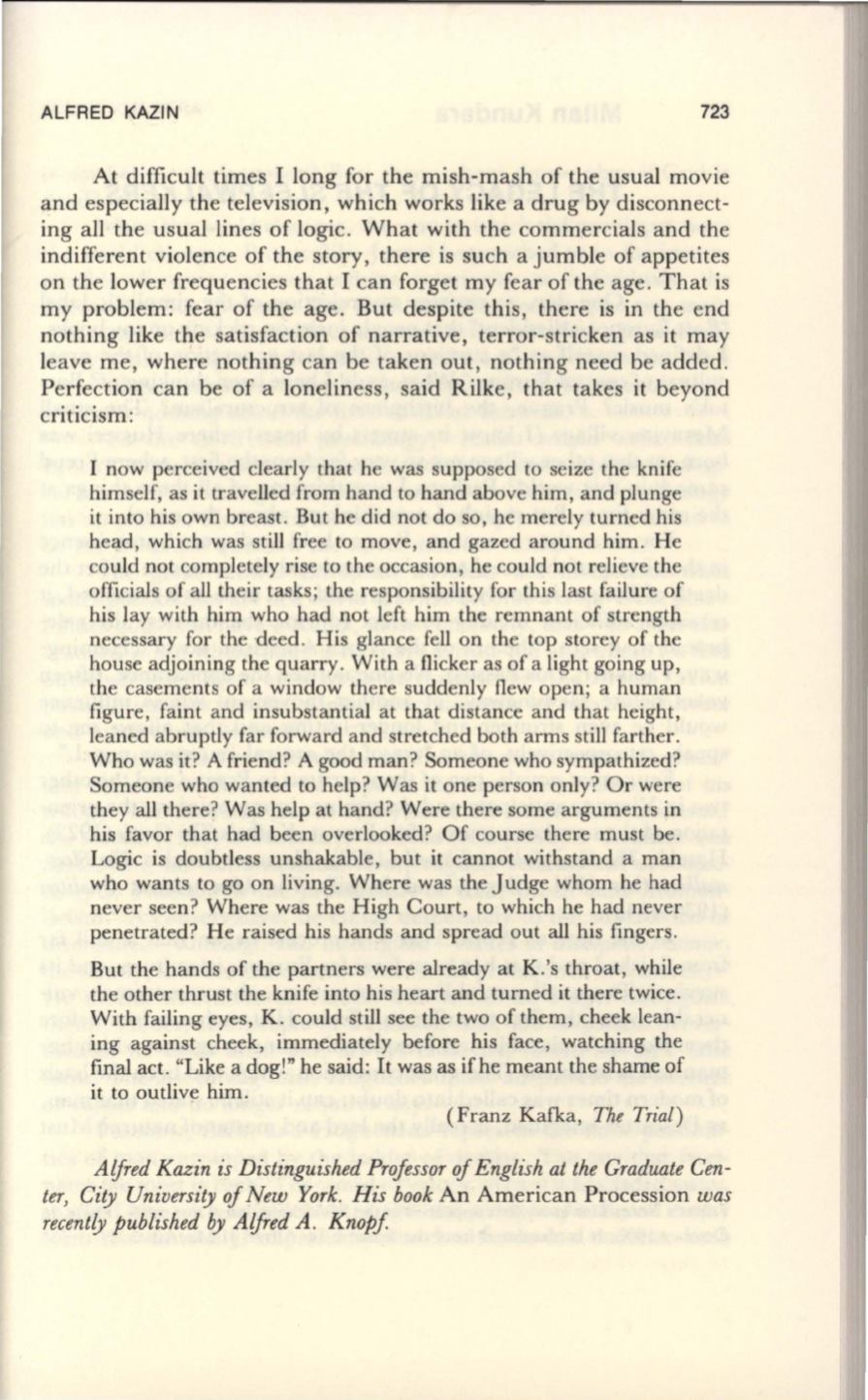
ALFRED
KAZIN
723
At difficult times I long for the mish-mash of the usual movie
and especially the television, which works like a drug by disconnect–
ing all the usual lines of logic. What with the commercials and the
indifferent violence of the story, there is such a jumble of appetites
on the lower frequencies that I can forget my fear of the age. That is
my problem: fear of the age . But despite this, there is in the end
nothing like the satisfaction of narrative, terror-stricken as it may
leave me, where nothing can be taken out, nothing need be added .
Perfection can be of a loneliness, said Rilke, that takes it beyond
criticism:
I now perceived clearly that he was supposed to seize the knife
himself, as it travelled from hand to hand above him , and plunge
it into his own breast. But he did not do so, he merely turned his
head, which was still free to move, and gazed around him. He
could not completely rise to the occasion, he could not relieve the
officials of all their tasks; the responsibility for this last failure of
his lay with him who had not left him the remnant of strength
necessary for the deed. His glance fell on the top storey of the
house adjoining the quarry. With a flicker as of a light going up,
the casements of a window there suddenly flew open; a human
figure , faint and insubstantial at that distance and that height,
leaned abruptly far forward and stretched both arms still farther .
Who was it? A friend? A good man? Someone who sympathized?
Someone who wanted to help? Was it one person only? Or were
they all there? Was help at hand? Were there some arguments in
his favor that had been overlooked? Of course there must be.
Logic is doubtless unshakable, but it cannot withstand a man
who wants to go on living. Where was the Judge whom he had
never seen? Where was the High Court, to which he had never
penetrated? He raised his hands and spread out all his fingers .
But the hands of the partners were already at K .'s throat, while
the other thrust the knife into his heart and turned it there twice.
With failing eyes, K. could still see the two of them, cheek lean–
ing against cheek, immediately before his face, watching the
final act. "Like a dog!" he said: It was as if he meant the shame of
it to outlive him.
(Franz Kafka,
The Trial)
Alfred Kazin is Distinguished Professor of English at the Graduate Cen–
ter, City University ofNew York. His book
An American Procession
was
recently published by Alfred A. Knopf


